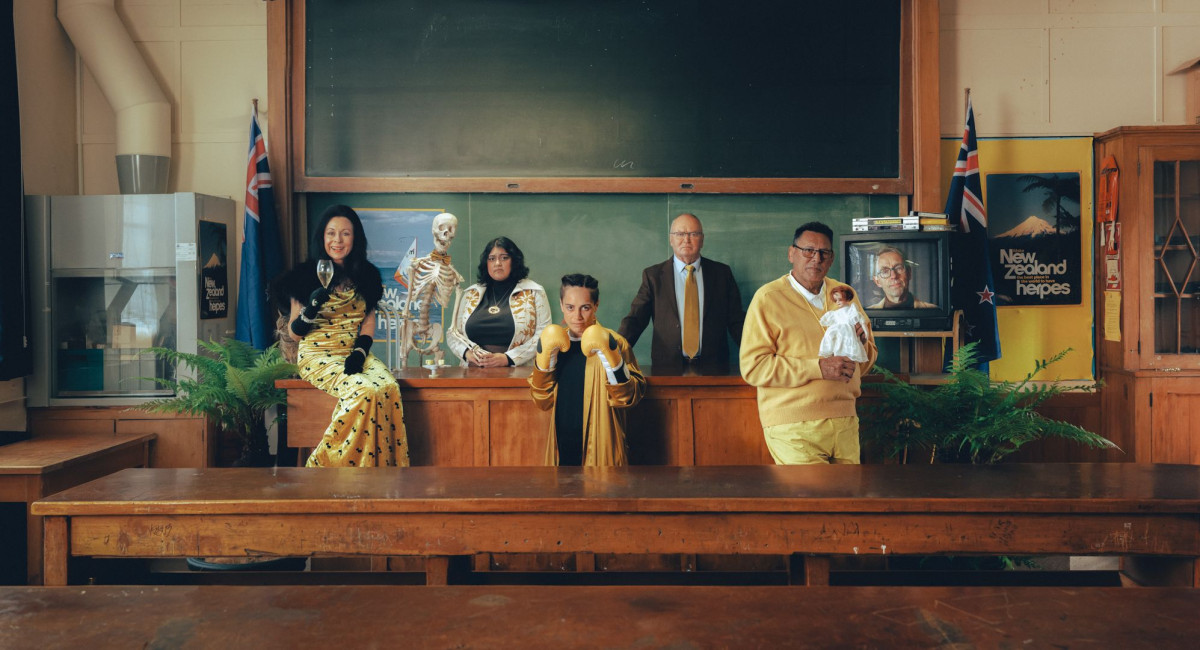Content warning: This article mentions mental health and suicide.
Ivy was 22 when a man with a cold sore went down on her (badly, if she may add), ghosted her the next day, and on top of that, gave her genital herpes.
She says she struggled with her diagnosis at first because she held so much stigma towards herpes.
Up to 80% of New Zealanders catch herpes at some point in their lives, according to the New Zealand Herpes Foundation, so why is there still a huge stigma?
“I was absolutely devastated, I really believed my life was over.”
What is herpes?
Herpes simplex virus (HSV), aka herpes, is an infection which can cause painful blisters or ulcers and spreads primarily through skin-to-skin contact.
There are two strains of the virus: HSV-1, or oral herpes, which causes cold sores in or around the mouth and can also cause the second strain HSV-2, or genital herpes, which spreads through sexual contact.
The New Zealand Herpes Foundation (NZHF) has launched a campaign to make New Zealand “The Best Place in the World to have Herpes”, which aims to destigmatise herpes in a funny, educational and light-hearted way through online courses.
Courses are taught by Sir Ashley Bloomfield, Sir Graham Henry, Sir Buck Shelford, world boxing champ Mea Motu, actress Anne Batley-Burton and comedian Angella Dravid.

A campaign has been launched to make New Zealand the best place in the world to have herpes. (Photo: Supplied)
The Herpes Stigma Index surveyed thousands of people across 10 countries before the campaign launch and found New Zealand to have the second highest rate of fear of stigmatisation. Now, it keeps a live ranking of the countries as people take the course and break the stigma.
But herpes is a very common skin condition. The World Health Organisation estimated 3.7 billion people under the age of 50 have oral herpes and an estimated 491 million people aged 15-49 have genital herpes.
According to the NZHF, 27% of women and 17% of men, by age 38, have genital herpes in Aotearoa. More than 80% won’t know they have it, will not have any symptoms, and live ordinary lives.

Actress Anne Batley-Burton, comedian Angella Dravid, world boxing champ Mea Motu, Sir Graham Henry, Sir Buck Shelford and Sir Ashley Bloomfield. (Photo: Supplied)
People are more understanding and open-minded than you think
Ivy, who asked not to use her real name for privacy reasons, says when she first found out she had herpes, her mental health plummeted.
“I was suicidal for that week, I just… didn’t really know how to go forward in life.”
Two years later, a lot has changed for Ivy because now, she says she’s not only fine but thriving.
“I’ve got a partner now who’s really lovely and understanding.”
Anna, who is not using her real name for privacy reasons, is part of the majority of New Zealanders with herpes who don’t show symptoms.
The only reason she got her diagnosis 14 years ago was because it got picked up during a routine pap smear, and says she’s never had herpes outbreaks nor taken medication.
“The doctor… was really lovely about it. She was really like, ‘honestly this is so common, it’s fine, don’t worry’.”
While she says her doctor was great, she still felt horrified and awful.
“There were times where I was like, Oh my God, am I never going to have sex again, I’m 30… That’s sad.”
When she started dating again, the 39-year-old says the thought of disclosing her herpes diagnosis to a potential partner was horrible.
“It’s not the first thing you say, because that's weird. Then you hang out a few times and now it’s like I’ve tricked [them] into hanging out with me and liking me, and getting past that first point.”
She says some people needed time to think about it and came back to tell her it was okay, some told her they also had it, and some immediately told her it was fine.
“People are more forgiving and open than I thought they were going to be, which is nice.”
How the stigma can hurt young people’s mental health
Alaina Luxmoore was in her late 30s when she caught herpes.
She says she remembers wearing sunglasses when she picked up her antivirals at the pharmacy to cover her eyes from crying so much.
“I was [also] so nervous they would know I had herpes, because they’re giving the particular [antiviral for herpes], they’re going to know and I don’t want anyone to see my face.”
The now 43-year-old says she looks back and wonders where all that shame came from.

Alaina Luxmoore says she looks back and wonders where all the shame from being diagnosed with herpes came from. (Photo: Supplied)
“A lot of older people who are in their marriages or forever relationships are fine with their diagnosis.
“It’s younger people who feel like they’ve put a roadblock into their lives and their possibility for relationships that are suffering the most, so that’s who we need to do this campaign for.”
Alaina, who is now an NZHF trustee, says her advice to those struggling with the stigma is to be educated about the ins and outs of the virus, how to live with it, and that it’s so common.
“There’s no reason for someone to question a relationship with you.
“You don’t drop somebody because they caught the flu, and you don’t drop somebody because they caught Covid, or have chickenpox.
“So why should you drop somebody because they caught herpes?”
Where to get help:
- New Zealand Herpes Foundation: 0508 11 12 13 from a landline or 09 433 6526 from a mobile
- 1737: The nationwide, 24/7 mental health support line. Call or text 1737 to speak to a trained counsellor.
- Suicide Crisis Line: Free call 0508 TAUTOKO or 0508 828 865. Nationwide 24/7 support line operated by experienced counsellors with advanced suicide prevention training.
- Youthline: Free call 0800 376 633, free text 234. Nationwide service focused on supporting young people.
- OUTLine NZ: Freephone 0800 OUTLINE (0800 688 5463). National service that helps LGBTIQ+ New Zealanders access support, information and a sense of community.
More stories:
I have herpes and you probably do too
Eighty percent of people with genital herpes don’t know they have it.
Someone I really like has herpes, what should I do? | Horny on Main
"We haven’t gone that far yet, but...."
Lube-shaming is a thing, but it doesn’t have to be
Why are some people being talked out of using lube during sex?